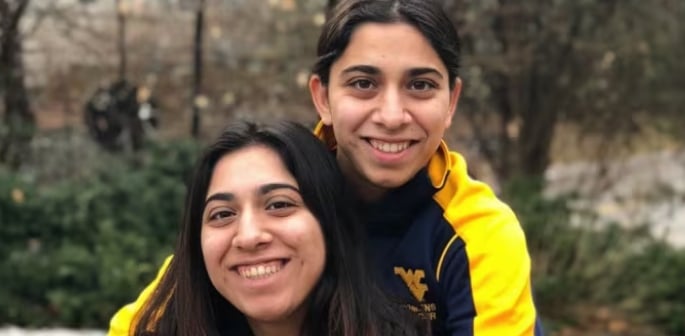Canadian Indian Mother & Twins Pretended to be Inuit

In a surprising case from Canada, three individuals are now facing criminal charges for allegedly impersonating Inuit heritage in order to gain benefits from indigenous organisations.
This unusual deception involves two sisters, Amira and Nadya Gill, aged 25, who posed as adopted Inuit children, and their 59-year-old mother, Karima Manji.
They are each facing two counts of fraud. The allegations have left the Inuit community and law enforcement baffled.
The Royal Canadian Mounted Police (RCMP) stated that the Gill sisters and their mother, between October 2016 and September 2022, deceived two local organisations by fraudulently obtaining grants and scholarships meant exclusively for Inuit beneficiaries.
These benefits are a result of the 1993 indigenous land claim settlement known as the Nunavut Agreement, which provides support to Canada’s Inuit community in the sparsely populated northern territory.
The registration of indigenous status is overseen by Nunavut Tunngavik Inc (NTI), representing Inuits in the territory.
NTI became aware of potential fraudulent enrollment when Ms. Manji claimed that the Gill sisters were adoptive children and identified an Inuk woman as their birth mother.
This case is unprecedented in the history of NTI’s enrollment program.
After a thorough investigation, the Gill sisters and their mother, originally from Ontario, were removed from NTI’s list of beneficiaries, and the matter was referred to the RCMP.
The woman identified by the Gills as their birth mother, Kitty Noah, confirmed before her passing in July that she had no relation to the twins.
In 2021, the Gill sisters, both graduates of Queen’s University in Ontario, launched an online business selling face masks featuring designs by indigenous artists.
NTI President Aluki Kotierk, in an interview with Canadian broadcaster CBC, emphasied that, at the very least, the Gill sisters and their mother should return the money received from Inuit associations.
He also mentioned that NTI would be conducting additional training for enrolment committees in the future.
Kotierk characterized the alleged fraud as “another form of colonisation” and part of a broader trend of non-indigenous Canadians falsely claiming indigenous heritage.
The NTI, in a statement, described the case as “isolated” but announced plans to strengthen enrolment criteria, including requiring applicants to provide a copy of their long-form birth certificate.
In addition to the funds received from the Kakivak Association and the Qikiqtani Inuit Association, falsely claiming indigenous status allowed the twins to receive scholarships from Indspire, a Canadian indigenous charity, electricity company Hydro One, and the Royal Bank of Canada.
The Royal Bank of Canada mentioned that scholarship requirements have since been updated.
Some Canadians have colloquially referred to those falsely claiming indigenous ancestry as “pretendians.”
However, Jean Teillet, a member of the Métis indigenous community, believes that the term downplays the seriousness of the issue.
She asserts that “fraud” is a more appropriate description, as it entails intentional deception for material gain.
As of now, the three women charged have not provided any immediate comments on the allegations.
They are due to appear in court in Iqaluit on October 30, 2023.